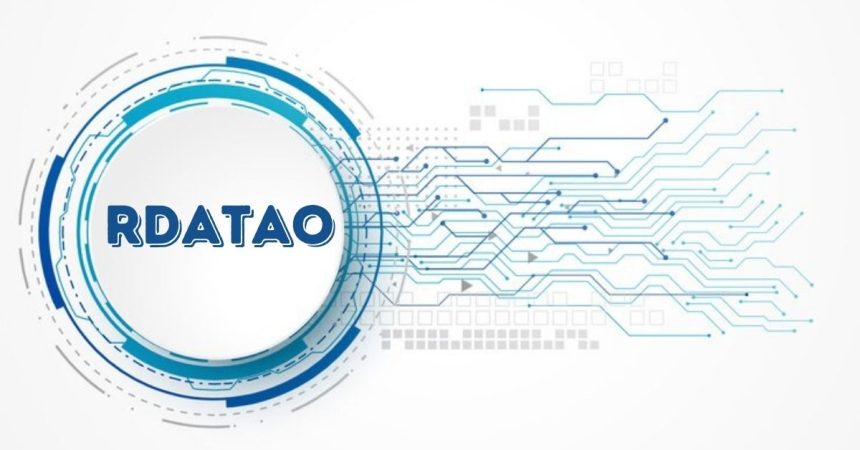In the ever-evolving landscape of data management, technologies that rdatao streamline and optimize data storage and retrieval are crucial. One such technology is RDatao, a term that has emerged as a significant player in the field of data management. Though it might not be immediately recognizable, RDatao represents an innovative approach that addresses the challenges of handling large volumes of data efficiently. This article delves into the core aspects of RDatao, exploring its evolution, functionalities, and the impact it has on contemporary data management systems.
The Genesis of RDatao
RDatao began as a response to the increasing complexity and volume of data generated by various industries. As businesses and organizations transitioned to digital platforms, the need for a robust and scalable data management solution became apparent. Traditional methods of data storage and retrieval were often inadequate for handling the dynamic and expansive nature of modern data sets. This gap in the market led to the development of RDatao, which aimed to offer a more efficient and versatile approach.
At its core, RDatao is designed to facilitate the seamless integration of data from diverse sources. It provides a unified framework that allows organizations to aggregate, process, and analyze data with greater ease. The evolution of RDatao reflects a broader trend in data management towards solutions that not only enhance performance but also ensure adaptability in the face of evolving technological landscapes.
Key Features and Functionalities
RDatao incorporates several key features that distinguish it from other data management technologies. One of its primary attributes is its ability to handle vast amounts of data with minimal latency. This is achieved through advanced algorithms and optimization techniques that enable rapid data processing and retrieval. As a result, organizations can access and analyze data in real-time, leading to more informed decision-making and improved operational efficiency.
Another significant feature of RDatao is its scalability. Unlike traditional systems that may struggle with increased data loads, RDatao is designed to scale effortlessly as data volumes grow. This scalability is crucial for organizations that anticipate significant growth or need to manage fluctuating data loads. RDatao’s architecture supports horizontal scaling, allowing it to distribute data processing across multiple nodes, thus ensuring consistent performance regardless of the scale of operations.
Security is another critical aspect of RDatao. In an era where data breaches and cyber threats are prevalent, RDatao implements robust security measures to safeguard sensitive information. Encryption, access controls, and regular security updates are integral components of the RDatao framework, providing organizations with the confidence that their data is protected from unauthorized access and potential threats.
The Impact on Modern Data Management
The introduction of RDatao has had a profound impact on modern data management practices. By addressing the limitations of traditional systems, RDatao has enabled organizations to manage data more effectively and efficiently. The ability to process and analyze large datasets in real-time has transformed the way businesses approach decision-making and strategy development. With RDatao, organizations can leverage data-driven insights to drive innovation, optimize operations, and gain a competitive edge in their respective industries.
Furthermore, RDatao’s scalability and adaptability have made it a preferred choice for organizations across various sectors. From healthcare to finance, and from retail to technology, industries that rely heavily on data have embraced RDatao for its ability to handle complex data environments. The technology’s versatility ensures that it can be tailored to meet the specific needs of different industries, making it a valuable asset in the modern data landscape.
The Future of RDataos
As technology continues to advance, the future of RDataos looks promising. Ongoing developments in data science and artificial intelligence are likely to further enhance its capabilities, enabling even more sophisticated data management solutions. The integration of machine learning algorithms, for example, could revolutionize data processing and analysis, providing deeper insights and more accurate predictions.
Additionally, the growing emphasis on data privacy and regulatory compliance is expected to drive further innovations in RDatao’s security features. As organizations face increasingly stringent regulations regarding data protection, RDatao’s commitment to robust security measures will remain a key factor in its continued relevance and success.
In conclusion
RDataos represents a significant advancement in data management technology. Its ability to handle large volumes of data, scale efficiently, and ensure robust security makes it a valuable tool for organizations across various industries. As the field of data management continues to evolve, RDatao’s role in shaping the future of data handling and analysis will undoubtedly be pivotal. By understanding and leveraging the capabilities of RDatao, organizations can position themselves to thrive in an increasingly data-driven world.
Frequently Asked Questions about RDatao
Q1. What is RDataos?
RDataos is an advanced data management technology designed to handle large volumes of data efficiently. It integrates data from various sources, processes it in real-time, and offers scalable solutions for data storage and retrieval. It is particularly useful for industries dealing with complex and expansive datasets.
Q2. How does RDataos handle large datasets?
RDataos utilizes advanced algorithms and optimization techniques to manage large datasets with minimal latency. Its architecture supports horizontal scaling, which distributes data processing across multiple nodes, ensuring consistent performance even as data volumes increase.
Q3. What industries can benefit from RDataos?
RDataos is versatile and can be applied across various industries, including healthcare, finance, retail, and technology. Each sector benefits from its ability to process and analyze data efficiently, improve decision-making, and enhance operational efficiency.
Q4. How does RDataos ensure data security?
RDataos implements robust security measures, including encryption, access controls, and regular security updates, to protect sensitive information. These features help safeguard data from unauthorized access and potential cyber threats.
Q5. What are the future prospects for RDataos?
The future of RDatao looks promising with ongoing advancements in artificial intelligence (AI) and machine learning (ML). These technologies are expected to enhance RDatao’s capabilities in data analysis and predictive modeling, further improving its efficiency and adaptability in the evolving data management landscape.










